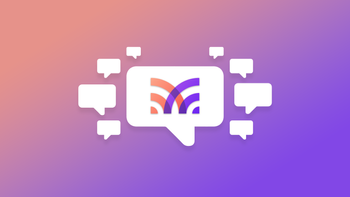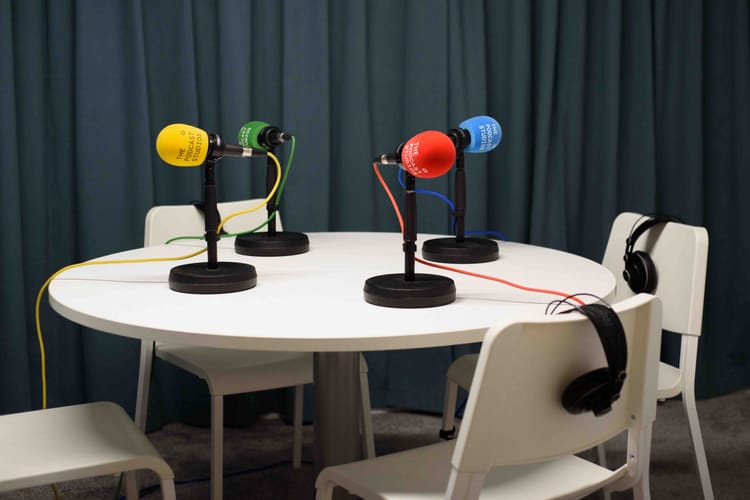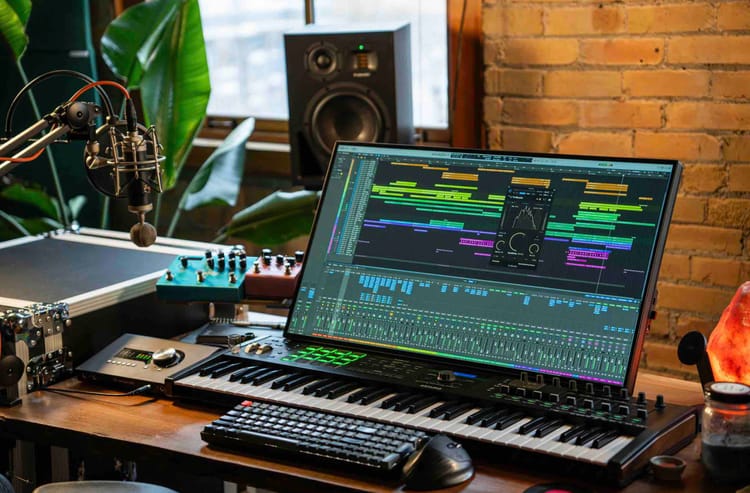It’s a cliché. But it’s true. Failing to prepare is preparing to fail.
And that’s definitely the case with podcast interviews.
There’s no shortage of ‘interview fails’ or ‘awkward interview moments’ videos on YouTube. We take a strange delight in seeing it all fall apart for the interviewer. But it’s not fun when you’re the one sitting in the chair asking the questions. And while some interview disasters are completely unavoidable, many can be preemptively avoided through better preparation.
Preparation is the key to a good interview. It gives you structure, control, and an idea of the key topics and subjects to touch on. If you go in blindly, it’s highly unlikely you’ll capture the best content possible.
The moral of the story here is to do your homework and, well… prepare. Run through each item on the podcast interview checklist below to give yourself a solid foundation of relevant reference points to use in your next recording.
MatchMaker's Podcast Interview Checklist
Let's jump straight in...
1. Choose the Right Guest
The more interesting your guest, the better. Your audience is looking for a new insight into your topic, with a slice of something fresh and entertaining. And that’s why nailing your guest selection process is important. There are several key points to consider.
- Firstly, how interested are you in what this person has to say? If you yourself aren’t that interested in your guest, that’s a recipe for a very bland interview.
- Secondly, how much podcasting experience have they got? Have they already recorded plenty of interviews on other shows? Are those interviews engaging to listen to?
- Lastly, do they have an existing following online? If they share the interview will it help you reach a new audience? Don’t obsess over this though. It’s far more important for you to have a genuine interest in what your guest has to say. But it’s something to keep in mind as it’s often important when it comes to getting new listeners.

Book Your Next Guest the Easy Way
With more than 70,000 members, MatchMaker.fm is the largest online community connecting podcasters & guests.
Join MatchMaker todayIt's free to join!
2. Get To Know Your Guest Beforehand
Nobody wants to listen to an interview in which the person asking the questions knows nothing about their guest. It’s boring and definitely something you can easily avoid. Make sure you take a dive into the life of your guest and get to know them, as well as the things they care about. What have they worked on that’s led them up to this point? Doing your homework makes for a more interesting conversation, and the best bit is your guest will appreciate it too.
In our Meet the Podcasters interview series over at Podcast.co, this was evident in one of the episodes. Serena Louth, co-host of the Kitchen Club podcast, said it was always refreshing to chat to an interviewer who’s done their research.
It’s so nice talking to you when you know so much about our podcast. We’ve spoken to so many people who know nothing about what we do. It’s clear they haven’t listened to our show before speaking with us.
3. Have Your Questions Prepared & Ready To Go
When you’ve got your guest sorted and you’ve done some online digging into their background and career, preparing a list of questions or talking points is always a good idea. Having them planned out will not only help you avoid any awkward pauses, but they’ll keep the conversation on track too. Going on tangents here and there is fine, but good interviewers usually have a clear sense of direction going into a recording.
Before you start jotting your questions down, try to find out what they’ve been asked before. Chances are that if they’re usually asked the same question over and over, you’ll get a generic, rehearsed answer. So, by asking something different, you’ll almost definitely get a reply that’s a bit more unique. Here are a few quick places to check to arm yourself with material:
- What does the “About” section on their website convey about them?
- What are they sharing / podcasting about on social media?
- What interesting points have they made in other interviews?
- Try to read between the lines and look for fresh angles to frame your questions.
For a list of great interview questions to ask guests, check out this article.
4. Let Your Guest See the Questions Before Recording
To avoid catching your guest off guard, send them your questions beforehand. This’ll give them a chance to check over what you’re going to ask them. And whilst you don’t want everything to be rehearsed to a T, it’s only good manners to let them have an idea of what’ll come up. If you happen to be dealing with a controversial subject matter, it’ll also create the perfect opportunity for your guest to voice any concerns, ensuring everything goes smoothly on the day.
5. Be Clear About the Important Details
Make sure that your guest has access to all the information they need in advance. So:
- What recording software will you be using?
- What link do they need to join the call?
- Who is your audience primarily made up of?
- Will the interview be video recorded, or audio only?
- Remind your guest to wear headphones if necessary.
- How will the episode be promoted?
- Are there any recurring segments on your show they should know about?
You want to make sure each guest knows exactly what’s in store and who they’ll be speaking to when they appear on your show. This will help them tailor their answers accordingly and help you record better content. If you’ve made the booking weeks before the scheduled recording date, that may mean sending a reminder email re-iterating the key points a few days before the interview.
6. Find the Perfect Recording Location
Recording your interview in a coffee shop or a bar might sound like a good idea in theory, but it’s probably one you’ll regret. Be it background chatter, noise from the street or just too small of a space, the distractions are plentiful. Instead, try to find a peaceful spot where you’re unlikely to be interrupted or pick up pesky background noises. Recording in a smaller room with a carpeted floor can help dampen echos. Try to avoid recording in big rooms with high ceilings to minimise reverb.
How to Convert a Room Into a Home Podcast Studio Setup
7. Invest in the Right Equipment
To make sure every word of your conversation is recorded well, you’ll want to invest in a good microphone. You don’t need to go for the most expensive or tech-heavy ones to get great playback though, especially if you’re just starting out and trying to get to grips with everything. Getting into all the ins and outs of recording equipment is beyond the scope of this article, but if you’d like a bit more info, check out our guide below.
Essential equipment for podcast production
8. Put Together an Intro for Your Guest
If you know your way around the podcast charts, you’ve probably listened to a mixed bag of guest introductions by now. Some are short and snappy, some are entertaining and others are just a bit rambly. Pulling one together for your guest so it’s ready to go makes everything easier. There are many different reasons for this, one of them being it’s a good way of setting up the podcast for your audience specifically. Nobody knows your listeners better than you do, and you know exactly what they want. So doing the groundwork and picking out the relevant bits of your guest’s bio, keeps audiences engaged and interested from the get-go.
In another episode of Meet the Podcasters, Colin Gray, founder of The Podcast Host blog, said:
It starts with the intro, give your guest a good intro so that they don’t have to ramble through their entire life’s history. Don’t just ask somebody ‘So, tell me about yourself’. You need to do that work yourself.
9. Promote Your Guest on Social Media
Keeping your social followings up-to-date with what’s going on is key for promoting guests, episodes and your podcast in general. And by doing it regularly, you’ll gradually start to build a community amongst your listeners.
For example, if you’re getting ready to record an interview with someone, let your followers know. It helps build excitement. Plus, engaging with your audience shows them that you’re a real person. You don’t just want them to tune in when you’ve released a new episode, you want to build a deeper relationship and connection with them that lasts years.

Lastly, politely ask your guest if they’d be willing to share the episode with their followers. Most will be happy to, since they’re probably promoting something as well. But if they’re not interested, don’t be pushy. They have no contractual obligation to share your podcast. If you’re lucky enough to make it onto their feeds, take it as a bonus win that’ll help extend your reach.
For tips on how to promote your episodes on social media, check out our guide below:
How to Promote Your Podcast on Social Media (12 Expert Tips)
10. Last Minute Checks
On the day of the recording, you want to avoid getting thrown off by minor technical hiccups. So here’s a list of little checks that can make a big difference:
- Get a glass of water (and one for your guest if recording in person)
- Turn your notifications off - phone and laptop
- Double check your equipment is working (test recording is a good idea)
- Put your questions in eye-line to quickly refer to when needed
- Make sure you know how to pronounce your guest’s name
- Take a deep breath and relax
The 10-Step Podcast Interview Checklist:
1. Book the right guest
- Use MatchMaker.fm to find guests quickly
- Are you interested in what they have to say?
- Have they got podcasting experience?
- Do they have a social media following?
2. Dig deeper into the guest’s work and background
- Are you clued up on their work?
- Read the "About" section on their website
- Check out any associated company or business
- Google them to try and find previous interviews and publications
- Look at what they've been posting about on social media
- If they have a book, try to read at least some of it
3. Prepare unique interview questions
- Make not of what they’ve been asked before in other interviews
- Double check at least some of your questions are different
- Share questions with guest for approval (optional)
4. Let your guest know any relevant technical details
- What recording software will you be using?
- What link do they need to join the call?
- Who is your audience primarily made up of?
- Will the interview be video recorded, or audio only?
- Tell your guest to wear headphones if necessary.
- Send a reminder email if booking was made weeks in advance.
5. Find the best available recording location
- Is your location quiet and free from distractions?
- Switch off anything that could cause unwanted background noise
6. Get the right equipment and set it up
7. Write the guest’s intro
- Will it grab your audience’s attention?
- Is it in line with your listeners interests?
- Check it’s not too long - get to the point quickly
8. Last-minute checks
- Is your equipment working?
- Do a quick test recording
- Are your notifications turned off?
- Have you got everything you need?
- Are you comfortable?
9. Record interview
10. Promote interview and guest on socials
- Is your guest comfortable sharing it on their feeds?
- Have you optimised your posts for different platforms (Twitter, Instagram etc)

The #1 Podcasting Community
With more than 70,000 members, MatchMaker.fm is the largest online community connecting podcasters & guests.
Join MatchMaker todayIt's free to join!






